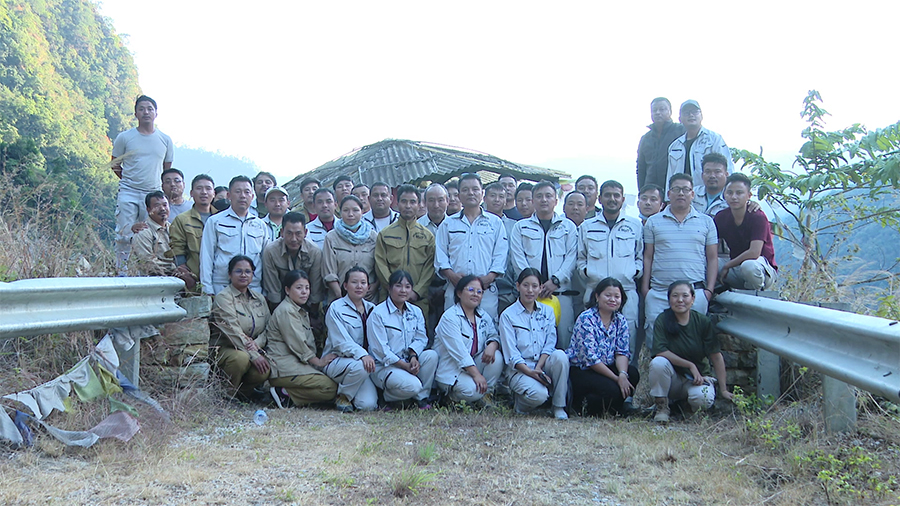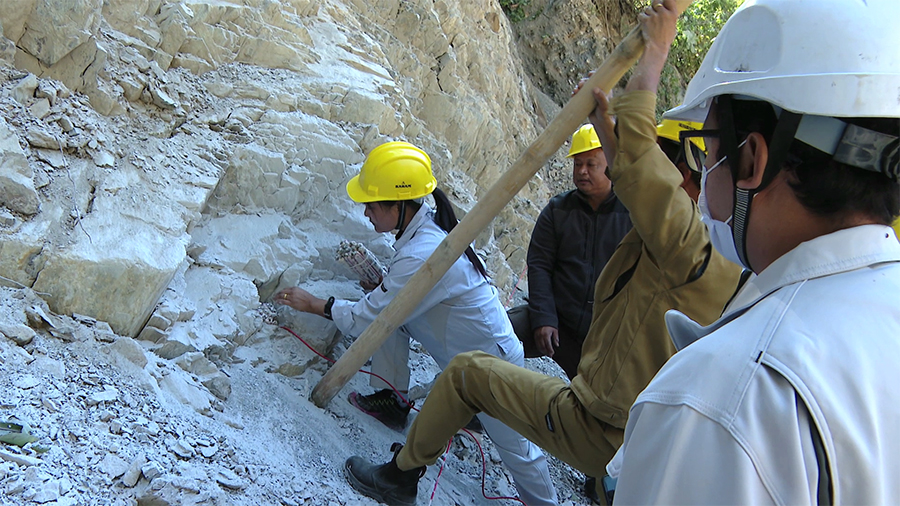
While explosives offer an efficient method for road construction, their handling and use pose inherent risks to workers, inhabitants, animals, and the environment. Recognizing the importance of skilled professionals in managing these risks, the Department of Surface Transport recently organised a training on safe handling of explosives and performing blasting at Lingmithang in Monggar. More than 30 road engineers and technicians from nine regional offices took part in the training.
 During the training which ended on Wednesday, participants were briefed on drilling patterns, handling explosives and techniques of conducting blasting operations.
During the training which ended on Wednesday, participants were briefed on drilling patterns, handling explosives and techniques of conducting blasting operations.
The training is expected to enable the participants in conducting blasting operations in a controlled and environment-friendly manner.
“Our department focuses on road widening and formation cutting. In such kinds of works, blasting is always involved. And we thought that the training will help in developing the capacity of our staff,” said Kinzang Namgyal, Coordinator, Department of Surface Transport, Thimphu.
Pema Tshewang, an Engineer said, “As a road engineer and as a site engineer we have to deal with these explosives daily. So this programme will bring a lot of insight on the subject for the engineers so that we can handle them properly without facing any difficulties.”
“During road widening works, we have to drill the boulders. Through the training, we have learned how to drill the boulders and how deep we have to drill them. We also know how to fit the explosives in them,” said Galey, an Engineer.
“Having both theory and practical classes is important. During the theory classes, we learn the procedures and when we implement them in the field, it is easier for us. However, sometimes after learning the theories, when we reach at the site, the situation would turn out to be completely different,” said Dago Lham, a Jr. Engineer.
The department also aims to instil a culture of safety and adherence to blasting protocols as set by the Department of Law and Order.
“If a person is not certified, firstly they are not supposed to do any blasting. Secondly, even if they do it, it is illegal. That’s why this time, our ministry, especially the department has coordinated blasting and explosive training for the engineers and technicians who are actively involved in constructing roads,” said Kinzang Dorji, a Chief Engineer at the Department of Surface Transport in Lingmithang.
The training is expected to empower each Regional Office with a competent and certified blaster to oversee all blasting activities in their areas.
However, to get certified, the participants need to score an average of at least 66% in a comprehensive assessment after the training. 27 out of the 31 participants passed the assessment.
Karma Wangdi
Edited by Kipchu








